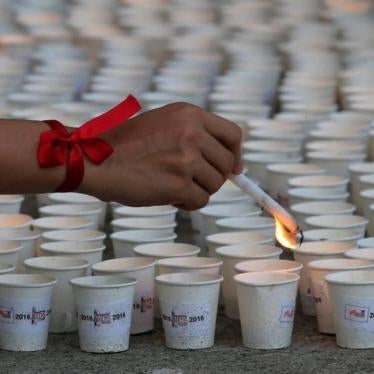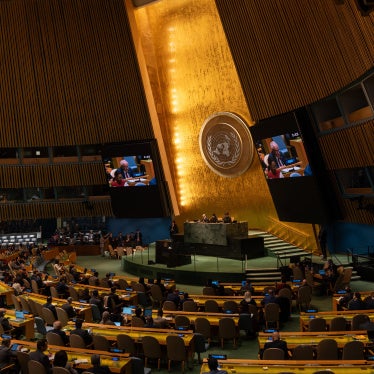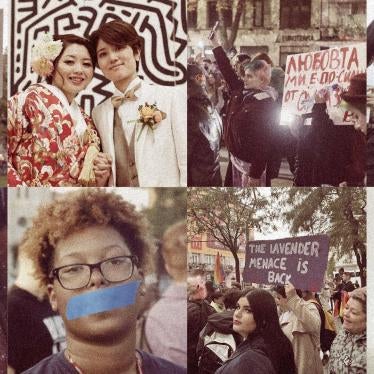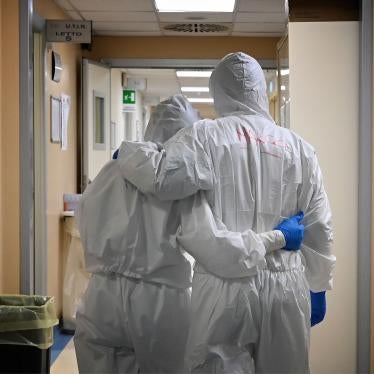Objections to recognizing the human rights of girls and women and those most at risk of HIV infection are threatening to derail this week’s United Nations meeting on AIDS, Human Rights Watch said today.
The U.N. meeting in New York is focused on progress in the fight against HIV since the 2001 AIDS summit and on developing a road map towards achieving universal access to prevention, care and treatment by 2010.
“Fifty thousand people will die this week while delegates debate any reference to vulnerable populations,” said Joe Amon, director of the HIV/AIDS program at Human Rights Watch. “Yet this vulnerability to HIV/AIDS is aggravated by the failure of global leaders to face facts, speak truths and protect rights.”
Countries such as Syria, Egypt and Gabon are trying to block language on the empowerment of girls, to any mention of harm reduction and even any reference to vulnerable populations, threatening the effectiveness of the proposed U.N. document. Other countries, led by the United States, have opposed the inclusion of specific targets. These changes would render the declaration of commitments to be produced on Friday a weaker document than that produced by the 2001 U.N. General Assembly Special Session on AIDS.
“Without targets in the declaration there will be no way to hold governments accountable,” said Amon. “We will have an empty document, and five years from now another 25 million people will have died from AIDS.”
In the 25 years since AIDS was first recognized, few countries have succeeded in turning the epidemic around. Those that have done so have provided comprehensive information on HIV transmission to their populations, addressed the vulnerability of women and girls to violence and abuse, ensured access to condoms, clean needles and methadone and expanded access to anti-retroviral drugs.
UNAIDS and some delegate countries are pushing for concrete language to build on the lessons learned from these successes.
Human Rights Watch said that unless countries adopt approaches to HIV that are rooted in human rights principles and informed by scientific evidence, the AIDS epidemic will keep growing.
“The world is finally paying attention to AIDS,” said Amon. “But ironically, that attention may actually reverse policy and jeopardize the few successes we have seen.”
Those most vulnerable to the disease, including young girls, injecting drug-users, sex workers, men who have sex with men, migrants and prisoners, are frequently victims of discrimination and other human rights abuses. People with HIV/AIDS are often denied proper access to housing, education, medical care and other services.
Human Rights Watch called on all delegates to recognize that success in fighting the epidemic depends on recognition, respect and protection for human rights.








